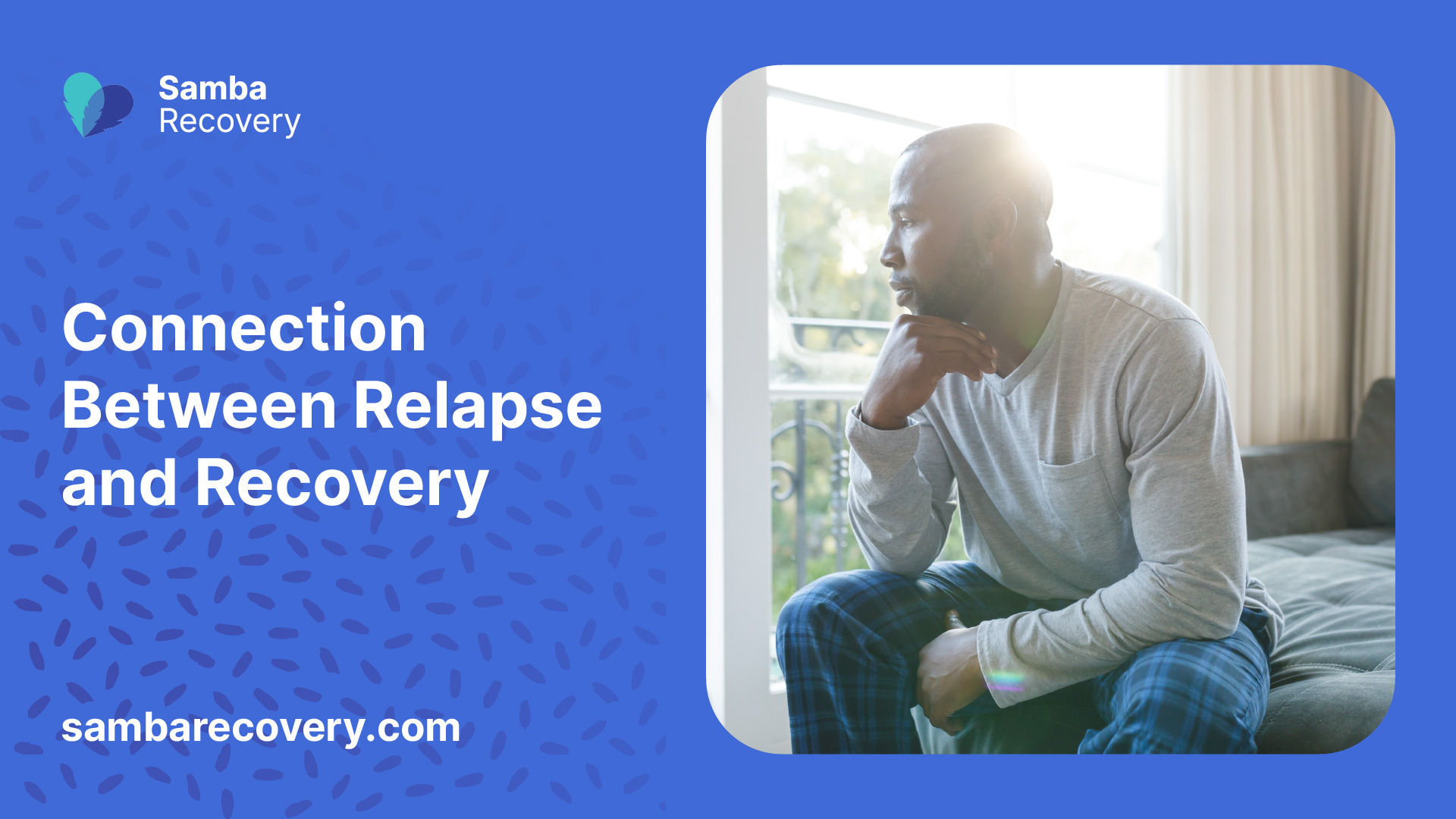
Understanding Relapse in Recovery
When it comes to addiction recovery, understanding the role of relapse is crucial. Addiction is a chronic condition with a tendency for lapsing and relapsing, similar to other chronic medical illnesses such as asthma, hypertension, and diabetes. Relapse refers to the return to substance abuse after a period of abstinence. Let’s explore the chronic nature of addiction and the rates of relapse in addiction.
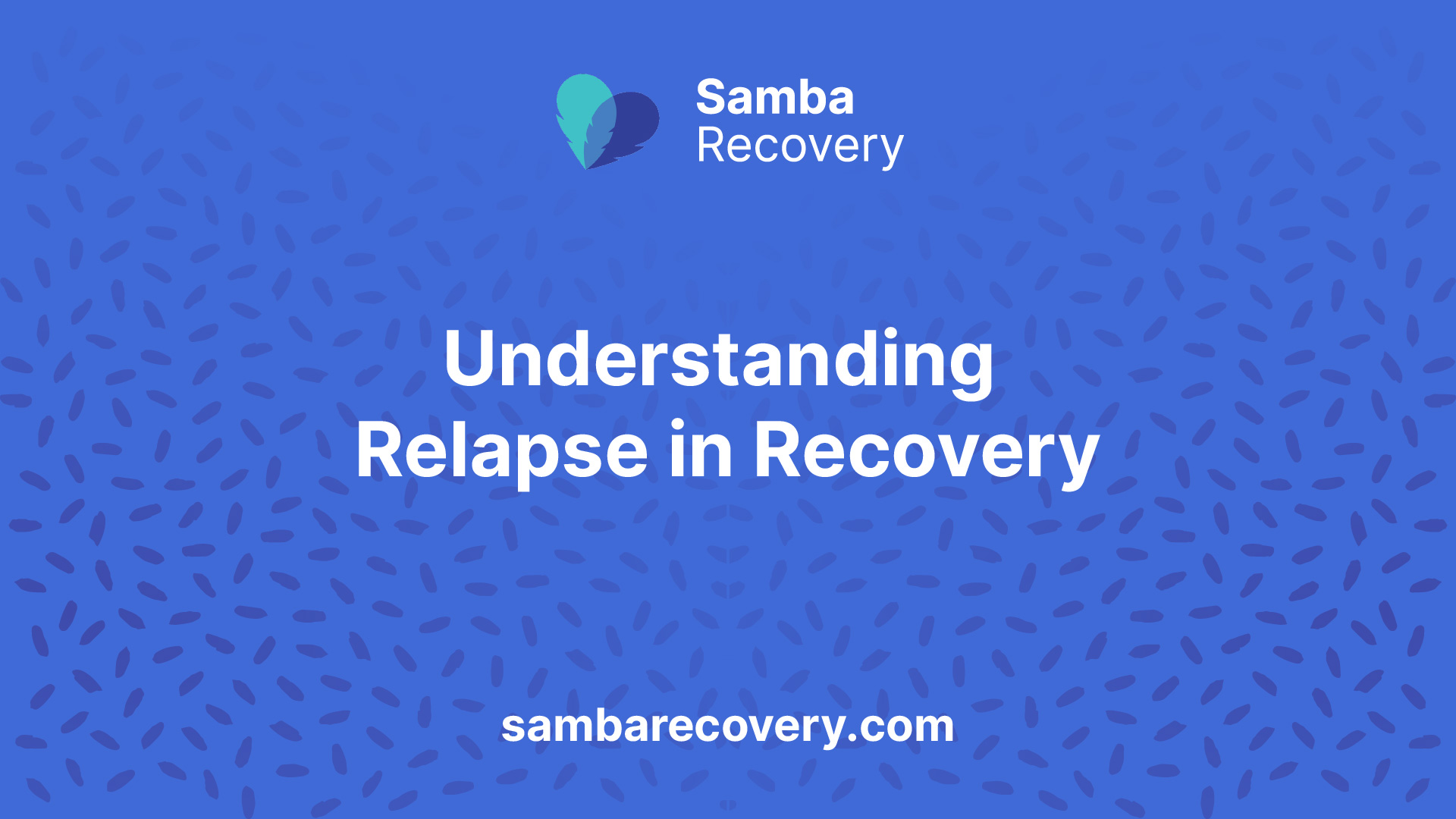
Chronic Nature of Addiction
Addiction is a chronic medical condition that affects millions of individuals. It is characterized by an inability to control substance use despite the negative consequences it brings. The chronic nature of addiction means that it often requires ongoing management and vigilance to maintain long-term recovery.
Rates of Relapse in Addiction
Relapse rates among individuals in treatment for substance abuse disorders vary, but studies indicate that they range from 40% to 60% [2]. Within 30 days of leaving an inpatient drug and alcohol treatment center, approximately 40-60% of individuals experience a relapse. Furthermore, within the first year, the relapse rate can increase dramatically, with up to 85% of individuals relapsing.
Relapse rates for addiction are comparable to those of other chronic medical illnesses. For example, more than 75% of individuals receiving treatment for alcoholism experience relapse within one year [4]. Rates of relapse for nicotine, heroin, and alcohol range from 80% to 95% over a one-year period. These figures highlight that relapse is a common, albeit challenging, aspect of recovery.
It is important to note that relapse does not mean that treatment has failed. Instead, it emphasizes the chronic nature of addiction and the ongoing need for relapse prevention strategies. Just as with other chronic medical illnesses, newer treatments are designed to help individuals with relapse prevention.
Understanding the chronic nature of addiction and the rates of relapse in addiction can help individuals in recovery and their loved ones approach relapse with compassion and seek appropriate support. By recognizing relapse as part of the recovery journey, individuals can focus on learning from lapses and developing effective strategies for relapse prevention. Explore more on the importance of ongoing support in the next section on group therapy vs. individual therapy and the long-term success of recovery.
Factors Influencing Relapse
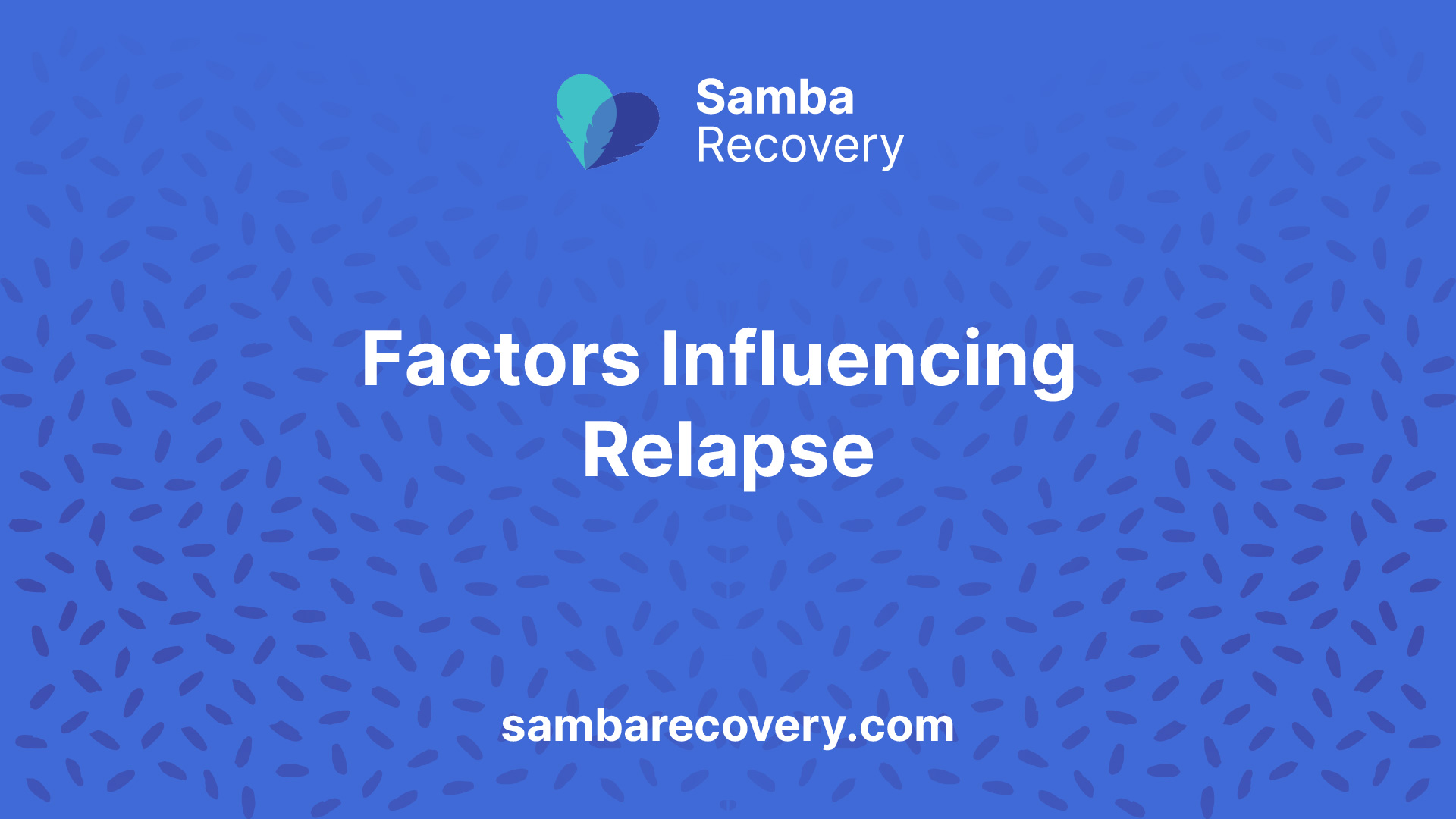
Relapse is a significant concern in addiction recovery. Understanding the factors that contribute to relapse can help individuals in their journey towards long-term sobriety. Two key factors that influence relapse are intrapersonal determinants and social support and relationships.
Intrapersonal Determinants
Intrapersonal determinants refer to individual characteristics and psychological factors that can impact the relapse process. These determinants include self-efficacy, outcome expectancies, emotional states, coping strategies, craving, and motivation. Each of these factors plays a role in an individual’s ability to maintain their recovery.
Self-efficacy refers to an individual’s belief in their ability to resist cravings and cope with high-risk situations. Higher levels of self-efficacy are associated with a reduced risk of relapse. Outcome expectancies, on the other hand, are beliefs about the anticipated consequences of using substances. Positive outcome expectancies can increase the likelihood of relapse.
Emotional states, such as stress, anxiety, and depression, can significantly impact an individual’s vulnerability to relapse. Developing healthy coping strategies and effective emotional regulation skills is essential for managing these emotional states without resorting to substance use.
Craving, a strong desire or urge to use substances, is a common experience in addiction recovery. Managing cravings is crucial in preventing relapse. Motivation plays a significant role as well, as individuals with higher levels of motivation to maintain their sobriety are more likely to resist relapse.
Social Support and Relationships
The role of social support and relationships cannot be overstated in relapse prevention. Positive social support, characterized by the presence of supportive and understanding individuals, has been found to be highly predictive of long-term abstinence rates across various addictive behaviors. Having a strong support network can provide encouragement, accountability, and guidance throughout the recovery journey.
Conversely, negative social support, such as being surrounded by individuals who engage in substance use or enable addictive behaviors, can increase the risk of relapse. It is important for individuals in recovery to evaluate and make intentional choices about their social circles, ensuring that they are surrounded by people who support their sobriety.
Developing healthy and meaningful relationships is also crucial for relapse prevention. Building connections with individuals who understand and empathize with the challenges of recovery can provide a sense of belonging, reduce feelings of isolation, and offer valuable insights and encouragement. Support groups, such as Alcoholics Anonymous and Narcotics Anonymous, can be instrumental in fostering these connections and providing ongoing support.
By addressing intrapersonal determinants and cultivating a supportive social environment, individuals in addiction recovery can enhance their resilience and reduce the risk of relapse. It is important to remember that relapse is not an indication of failure, but rather a potential bump in the road to recovery. With determination, effective coping strategies, and ongoing support, individuals can continue their journey towards lasting sobriety. For more information on how support groups can aid in the recovery process, check out our article on how support groups can aid your recovery.
Strategies for Relapse Prevention
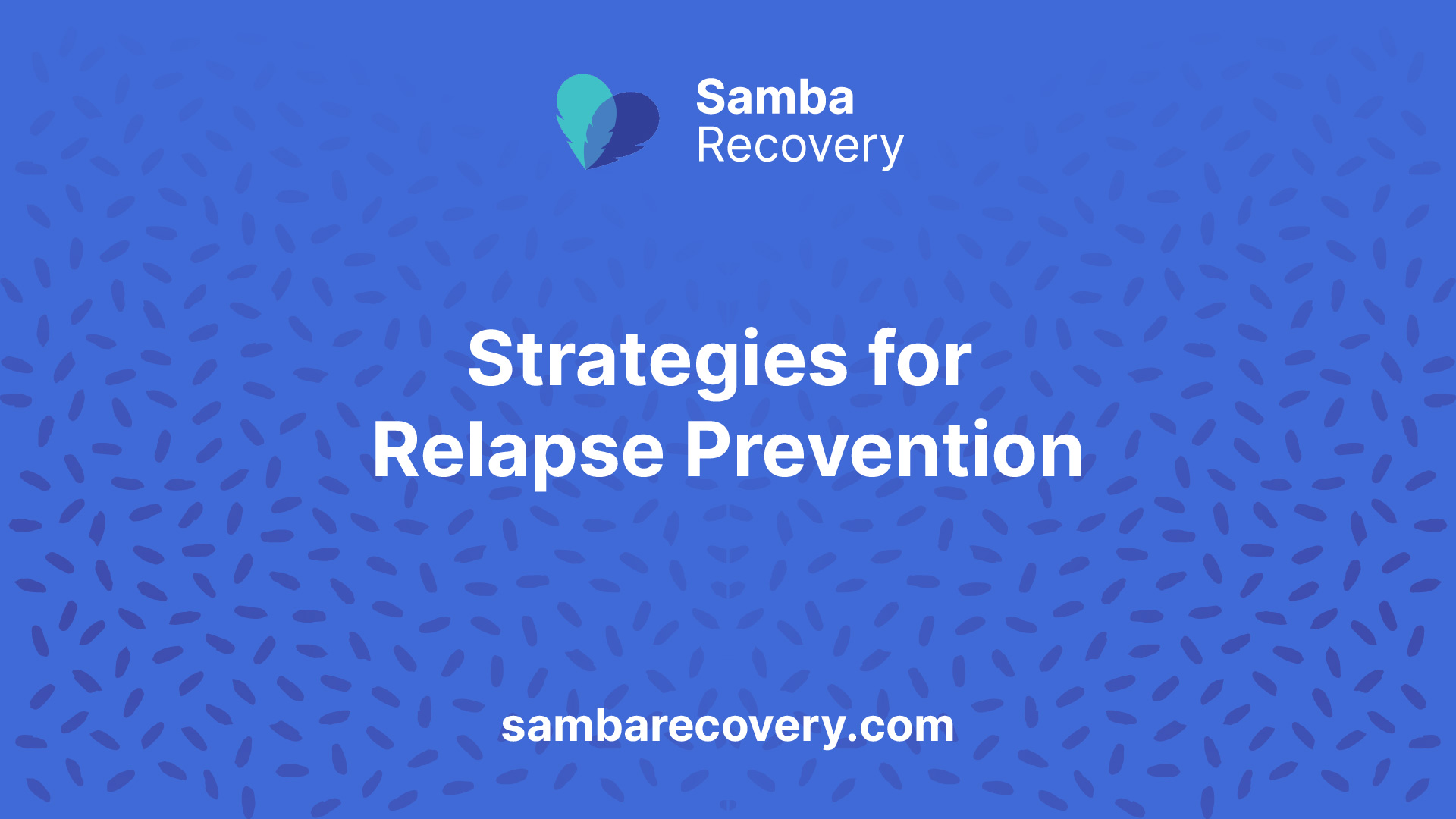
When it comes to addiction recovery, relapse prevention is a crucial aspect of maintaining long-term sobriety. By implementing effective strategies, individuals can reduce the risk of relapse and stay on the path to recovery. Two key approaches to relapse prevention include employing relapse prevention approaches and identifying triggers and stressors.
Relapse Prevention Approaches
Relapse prevention (RP) is a cognitive-behavioral approach aimed at identifying and addressing high-risk situations for relapse, assisting individuals in maintaining desired behavioral changes, and reducing the likelihood and severity of relapse following the cessation or reduction of problematic behaviors. It involves developing coping skills and strategies to manage cravings, avoid potential triggers, and maintain a healthy support system.
One effective relapse prevention approach is cognitive-behavioral therapy (CBT). CBT helps individuals recognize and modify negative thought patterns and behaviors associated with addiction. By exploring the relationship between thoughts and actions, CBT assists in developing healthier coping mechanisms and strategies to navigate challenging situations. CBT can be particularly beneficial in enhancing abstinence and reducing the risk of relapse.
Another important aspect of relapse prevention is the development of a comprehensive aftercare plan. Aftercare often includes ongoing therapy, support groups, and other forms of continued support to help individuals maintain their recovery. Engaging in support groups, such as Alcoholics Anonymous (AA) or Narcotics Anonymous (NA), can provide individuals with a network of individuals who understand the challenges of addiction recovery and offer guidance and support.
Identifying Triggers and Stressors
To effectively prevent relapse, it is essential for individuals in addiction recovery to identify their personal triggers and stressors. Triggers can be internal or external cues that activate the urge to drink or use drugs, increasing the risk of relapse. While triggers can vary from person to person, some common examples include stress, exposure to substances, social situations, or certain environments.
By recognizing and understanding these triggers, individuals can develop strategies to navigate them successfully. This may involve avoiding certain people or places, implementing stress-reduction techniques, or developing alternative coping mechanisms, such as engaging in physical exercise or practicing mindfulness. Identifying and addressing triggers and stressors is crucial for progress in recovery and reducing the risk of relapse.
In addition to individual triggers, it is important to address underlying mental health issues that may contribute to relapse. Co-occurring disorders, such as anxiety or depression, should be treated simultaneously with addiction to ensure comprehensive recovery. By prioritizing mental health and seeking appropriate professional help, individuals can strengthen their overall well-being and resilience in the face of potential triggers.
By employing relapse prevention approaches and actively identifying triggers and stressors, individuals in addiction recovery can enhance their ability to maintain sobriety. It is important to remember that recovery is a journey, and relapse does not signify failure. Learning from lapses and utilizing effective strategies can help individuals navigate the challenges of addiction recovery and increase their chances of long-term success.
Embracing the Recovery Journey
When it comes to addiction recovery, it’s important to recognize that relapse can be a part of the process. Recovery from addiction is often compared to a marathon, requiring patience and understanding for true healing to take hold. In this section, we will explore two key elements to embrace during the recovery journey: patience and self-compassion.
Patience
Recovery from addiction is not a linear path. It is a journey that involves ups and downs, and it’s essential to approach it with patience. Clients may experience periods of progress followed by setbacks, and this is completely normal. Rather than viewing relapse as a failure, it is crucial to see it as an opportunity for growth and learning. Relapse rates for addiction are similar to those of other chronic medical illnesses, demonstrating that setbacks are a common occurrence.
By cultivating patience, individuals in recovery can navigate the challenges with resilience. It’s important to understand that recovery is a process that takes time. Celebrating even small victories and acknowledging progress is key to maintaining motivation and perseverance.
Progress Over Perfection
In addiction recovery, the focus should be on progress rather than perfection. It is unrealistic to expect flawless recovery from the outset. Instead, individuals should strive for continuous improvement and personal growth. Recovery is not a destination but a continuous journey towards a healthier lifestyle.
Rather than viewing relapse as a sign of failure, it is essential to approach it with self-compassion and understanding. Clients are encouraged to embrace the recovery process with grace and without shame. The emphasis should be placed on the time between relapses, as improvement over time demonstrates the development of healthier habits and a commitment to change.
By adopting a mindset that prioritizes progress over perfection, individuals can foster self-love and acceptance. This mindset also helps to alleviate the pressure to achieve immediate and flawless recovery. It allows for gradual improvement and paves the way for long-term sobriety.
Throughout the recovery journey, it’s crucial to seek support and surround oneself with understanding individuals who can provide guidance and encouragement. Group therapy and individual therapy can both play significant roles in providing ongoing support. Remember, addiction recovery is a lifelong process, and success is measured by long-term sobriety and the ability to maintain a healthy and fulfilling life [6]. Stay committed, have patience, and celebrate each step forward on your unique recovery journey.
Managing Relapse Effectively
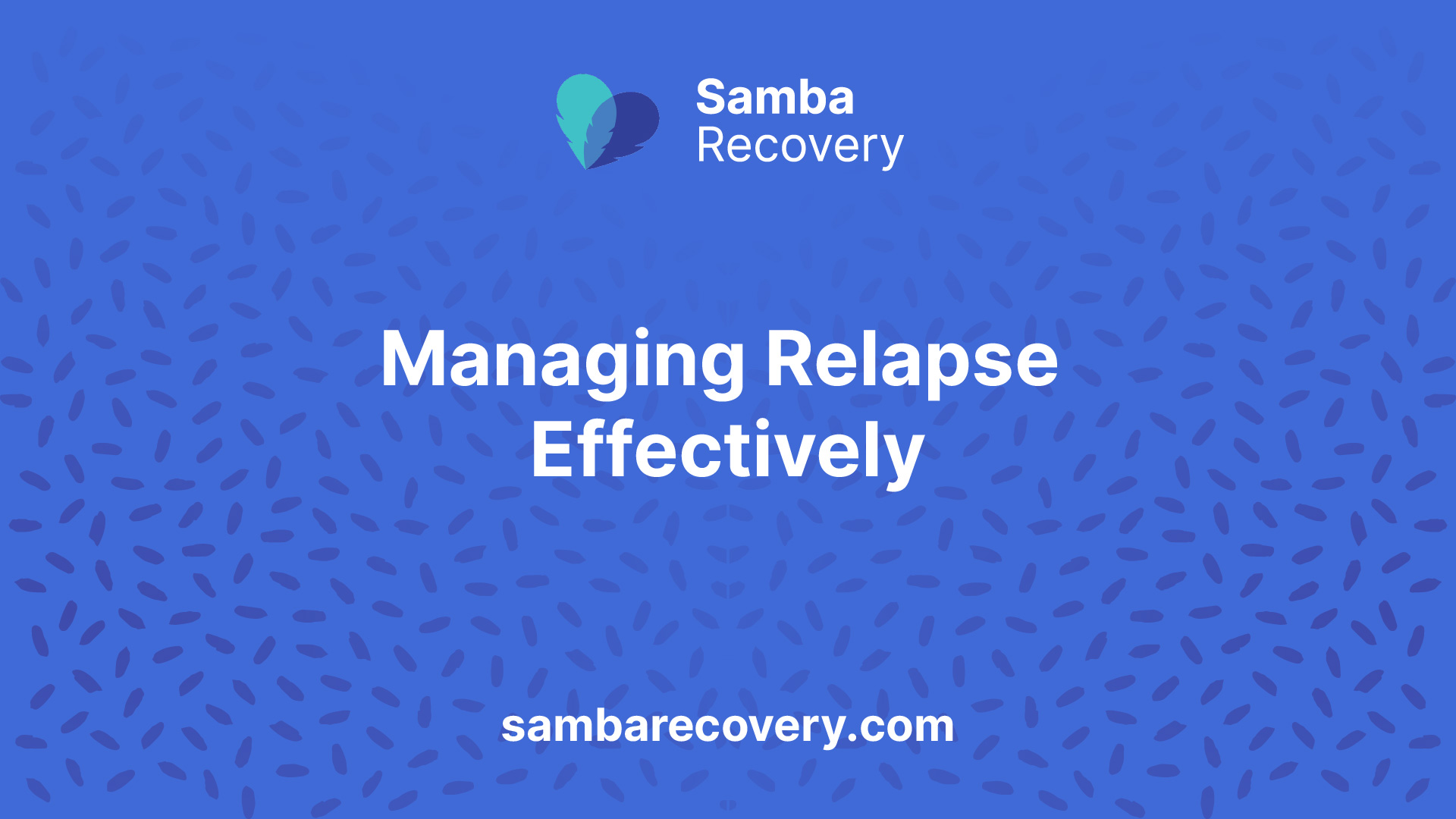
While relapse can be disheartening, it is important to approach it with understanding and adopt a proactive mindset. Handling relapses with compassion and learning from lapses are vital components of the recovery journey.
Handling Relapses with Understanding
Relapses should be handled with gentleness and understanding, keeping in mind that they can be extremely dangerous. For individuals who have been abstaining from substances, a sudden relapse into using high doses of drugs or alcohol can pose life-threatening risks [9]. It is crucial to recognize that relapse does not define the overall success or failure of recovery.
When a relapse occurs, it is important to reach out for support. Connecting with a therapist, counselor, or a support group can provide guidance and assistance in navigating the challenges associated with relapse. Support groups can offer a safe space to share experiences, gain insights, and receive encouragement from others who have gone through similar struggles.
Learning from Lapses
It is essential to differentiate between a lapse and a full relapse. A lapse refers to a single event of substance use, whereas a relapse involves a return to regular or problematic substance use. Understanding this distinction is crucial in preventing a lapse from turning into a relapse.
Rather than viewing a lapse as a failure, it can be seen as an opportunity for growth and learning. By addressing a lapse in a productive manner, individuals can identify triggers, stressors, or situations that contributed to the lapse and develop strategies to prevent future relapses. Learning from these experiences can strengthen one’s recovery journey.
To effectively learn from lapses, it is important to engage in self-reflection and identify the factors that led to the lapse. This may involve examining emotional states, environmental influences, or interpersonal relationships that contributed to the lapse. Learning to recognize and manage these triggers can be instrumental in preventing future relapses.
In addition to self-reflection, seeking professional guidance can provide valuable insights and strategies for relapse prevention. Therapists and counselors experienced in addiction recovery can help individuals develop coping mechanisms, resilience, and healthy habits that support long-term recovery. Building a robust aftercare plan that includes ongoing support and treatment is vital for sustained recovery.
By handling relapses with understanding and viewing lapses as opportunities for growth, individuals can navigate the recovery journey with resilience and determination. With the right mindset, support, and strategies, it is possible to learn from setbacks and continue progressing towards lasting recovery.
Importance of Ongoing Support
Recovery from addiction is a complex and challenging journey that requires ongoing support and care. It is essential to recognize that relapse can be a part of the recovery process. Understanding the importance of ongoing support and utilizing effective treatment approaches can greatly contribute to long-term recovery and success.
Group Therapy vs. Individual Therapy
When it comes to addiction recovery, group therapy or participation in a 12-step program often proves more beneficial than individual therapy. The group setting offers numerous advantages, including identification, peer advice, accountability, and hope, which may be harder to achieve in individual counseling sessions.
Group therapy provides individuals with a sense of community, allowing them to connect with others who have similar experiences. This shared understanding and support can foster a sense of belonging and reduce feelings of isolation. Additionally, group therapy offers the opportunity for individuals to learn from each other’s successes and setbacks, providing valuable insights and encouragement along the recovery journey.
On the other hand, individual therapy plays a crucial role in addressing personalized needs and challenges. It allows for focused attention on specific issues, providing a safe space to explore underlying causes of addiction and develop personalized coping strategies. Individual therapy can complement group therapy by offering a more individualized approach to recovery.
Both group therapy and individual therapy have their unique benefits, and the choice between the two depends on individual preferences and needs. Some individuals may find group therapy more effective due to the support and camaraderie it offers, while others may benefit from the personalized attention and tailored approach of individual therapy. It’s important to find the right balance and combination of therapies that work best for each individual’s recovery journey.
Long-Term Recovery and Success
Long-term recovery and success in addiction recovery are strongly influenced by ongoing support and aftercare. Positive social support, including family, friends, and support groups, plays a crucial role in relapse prevention. Research has shown that positive social support is highly predictive of long-term abstinence rates across various addictive behaviors [4]. Engaging in support groups, such as Alcoholics Anonymous or Narcotics Anonymous, can provide a network of individuals facing similar challenges and provide a safe space to share experiences and gain support [7].
It’s important to understand that relapse rates among individuals in treatment for substance abuse disorders range from 40% to 60%, according to the National Institute on Drug Abuse. Relapse is a common and challenging aspect of recovery, similar to other chronic diseases. It should not be seen as a failure but rather as an opportunity for learning and growth. Relapse does not define the overall success or failure of recovery.
To achieve long-term recovery and success, it is crucial to develop coping mechanisms, identify triggers and stressors, and implement relapse prevention approaches. Behavioral therapies, such as cognitive-behavioral therapy (CBT) and contingency management, are often used to modify attitudes and behaviors related to addiction, helping individuals handle stressful situations and triggers more effectively [5].
In conclusion, ongoing support is crucial for individuals in addiction recovery. Both group therapy and individual therapy play important roles in addressing the multifaceted challenges of addiction. Long-term recovery and success are achievable through a combination of effective treatment approaches, ongoing support systems, and a commitment to personal growth and well-being. Remember, recovery is a journey, and setbacks can be an opportunity for renewed strength and resilience.
References
[1]: https://americanaddictioncenters.org/rehab-guide/relapse-prevention
[2]: https://www.experiencerecovery.com/blog/why-do-addicts-relapse-when-things-are-good/
[3]: https://www.coniferpark.com/blog/is-relapsing-a-part-of-recovery
[4]: https://www.ncbi.nlm.nih.gov/pmc/articles/PMC5844157/
[5]: https://nida.nih.gov/publications/drugs-brains-behavior-science-addiction/treatment-recovery
[6]: /aftercare-in-the-substance-abuse-recovery-process
[7]: /how-support-groups-can-aid-your-recovery
[8]: https://www.psychologytoday.com/us/blog/minority-report/202105/relapse-is-part-recovery
[9]: https://www.gatewayfoundation.org/addiction-blog/is-relapse-part-of-recovery/






